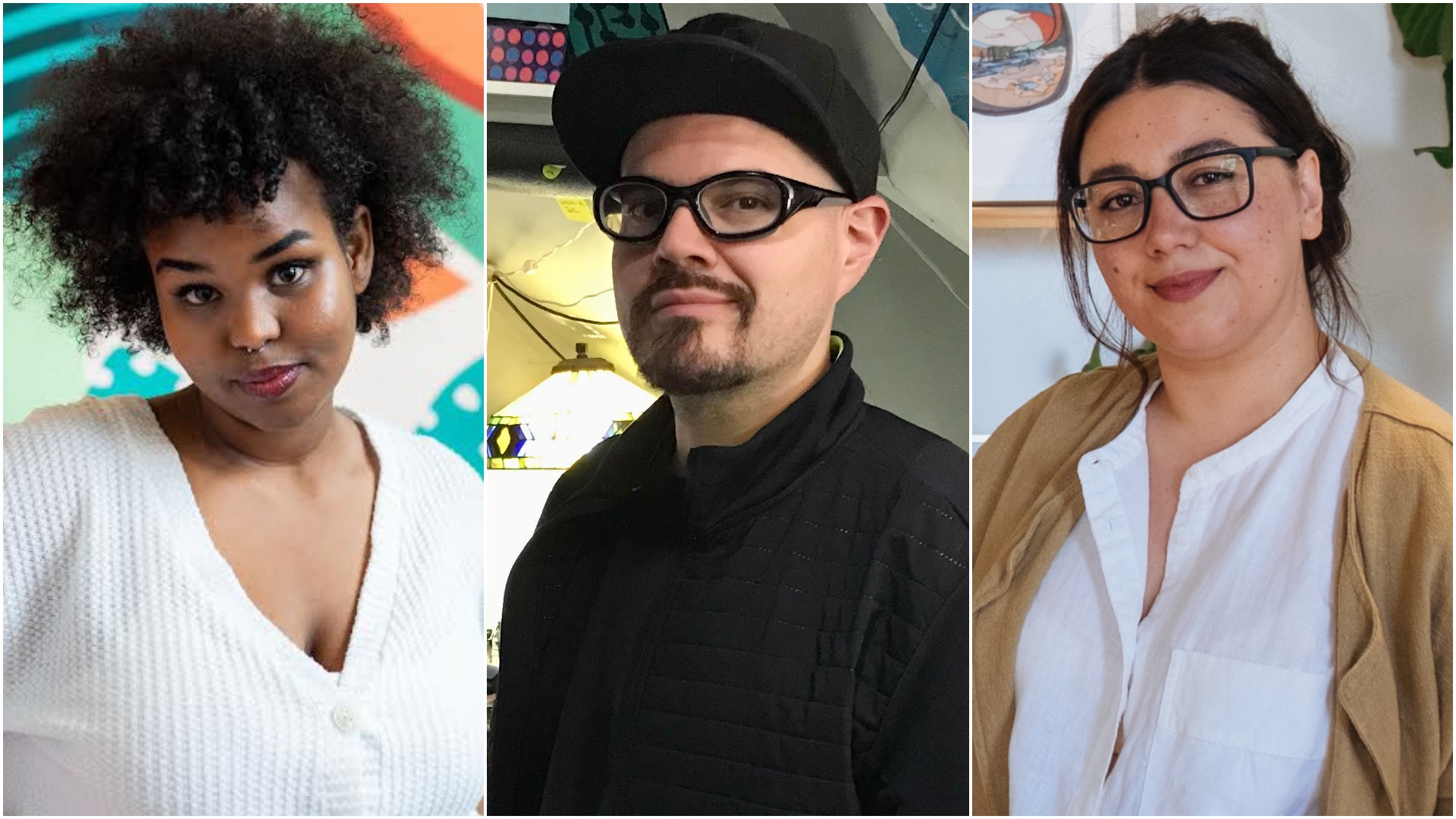It’s been said (and it better not have been by you!) that restaurants are having trouble hiring people because “no one wants to work anymore.”
Surely, many of us would jump at the chance not to work anymore. (I know I would.) But there are more important factors in play in the current situation. A pandemic. Burnout. Poor employment practices. Rude customers. Bad tippers. Working nights. Working weekends. And on and on and on.
It’s not that restaurants aren’t lovely. Truthfully, they’re some of the most special places in the world, able to surprise and delight and nurture and comfort and anything else you might need in a given moment. But that’s for you, the guest, to experience. Working in a restaurant—during a pandemic, yes, but really all the time—can be a whole other story.
During the first wave of local closures a million years ago (last March), bartenders, servers, cooks, dishwashers, and everyone else who makes a restaurant go round were sent home to await their fate. That time off from the grind, stressful as it was, allowed many folks to take a step back and think through what they wanted their day-to-day to look like going forward. And some of them decided not to return.
Many of these former restaurant workers are busy doing other cool things now, and we talked to six of them.
It’s quite possible that at some point one of these people served you, recommended a great bottle of wine, helped you have the best night ever, or aided in your recovery from one of the worst. Now, they’re doing something different—and in many cases, more fulfilling.
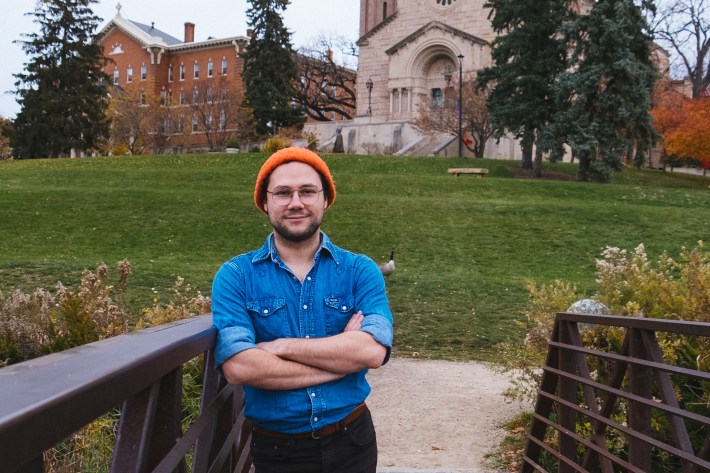
Nick Petree
Future social worker
Nick Petree once considered himself an industry lifer. Now, he’s on his way out, serving a few nights a week while he goes to school for social work.
Petree found his way into the hospitality industry at age 16 and landed at 112 Eatery in 2014, first as a server, eventually as a general manager. “The emphasis was so wholly on ‘How do we take care of people and make sure they feel like they’re having a wonderful time and feel good?’—both staff and guests,” he says of 112’s philosophy. “It was easy to fall in love with that work.”
But then, as the story tends to go, March 2020 arrived.
While the restaurant was closed, Petree found himself “living the way people are supposed to live.” Following George Floyd’s murder, he began volunteering with the Minneapolis Sanctuary Movement, where he was surrounded by professional social workers who seemed to offer “a grander purpose for those same skills” he’d honed in hospitality. When 112 invited him back, he decided not to return.
“Being inspired by the people I was watching and volunteering my time alongside, I felt this strong desire to actively take that love I have for caring for people—hosting, helping, making them feel heard and held—taking it one step further and helping people in my community who were really struggling as opposed to celebrating a birthday or anniversary,” he says.
Petree is happy to have found something that can “take the good elements of the hospitality industry, be it the hospitality itself, the interest in taking care of people, the empathetic nature,” and do something different with it.
“The restaurant industry asks for so much from people,” he says. “It can be such a grind, in particular when you’re in management positions and are on call all the time. You’re in long hours and stuck in the cycle of working and working. It takes all of your downtime to recharge for work.”
Still, that doesn’t mean he won’t find his way back eventually.
“It’s a skill set that I will tap into in some ways, but much of it I’ll be walking away from. The idea of never using it again... that’s something that I’ll really miss,” he says. “I can’t completely leave it—every time I’d go out to eat I’d be dreaming about it.”
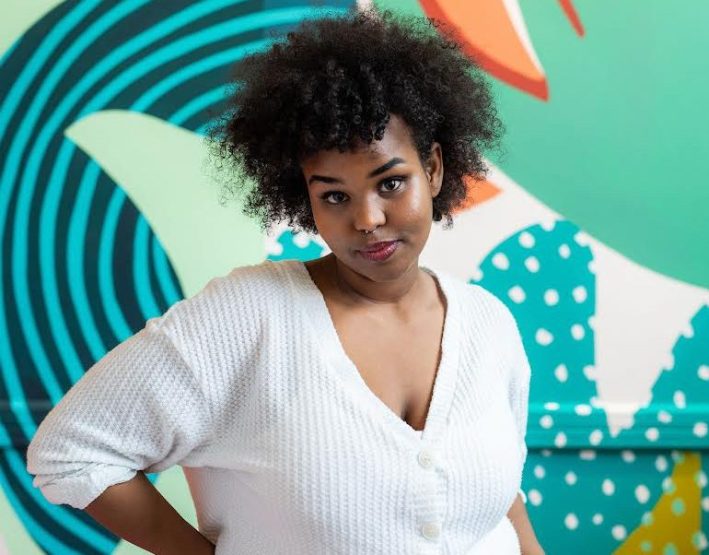
Amira Gadow
From restaurant hosting to community engagement
Amira Gadow had worked service-focused jobs before, but nothing prepared her for her first day as a host at Union, when she was tasked with running food for the first time—during a drag brunch.
“I think oftentimes we simplify service work, but it’s a very complicated job. There’s a lot of stress … at work, outside of work,” Gadow says. “Now, it’s easy for me to keep a level head because the worst has happened. And it happened during a busy shift.”
Before long, she swapped downtown for the North Loop and Spoon & Stable. Her last day was March 13, 2020, just before the pandemic forced it to close. Her next job was already lined up: a community engagement manager position at the Coven, a local coworking space and networking community for women, non-binary people, and trans individuals. She heard about the position after a chance meeting with founder Alex West Steinman.
“The experiences I was having weren’t worth what I was getting back from it,” she says of her final days in the restaurant industry. “Being a Black woman in that industry, it takes a toll—especially when there’s not many faces like mine. It’s a hard job regardless, but add a global pandemic?”
Gadow has some ideas to make the industry better: conversations about what equity and access look like, workplace sensitivity training. But unfortunately, restaurants naturally run on hierarchy.
“The host is at the bottom. It’s not like people were awful. They’re just not kind. I think when someone is serving you, and is there to cater to your experiences, you forget they’re people,” she says. “I don’t know if it’s able to be changed. You can’t change something if it’s meant to serve or be a certain way.”
Once she started her Coven job, she reconnected with aspects of herself that she’d been missing out on.
“I didn’t know how good it felt to sleep in on a Sunday for almost two years. Being able to have a stable work schedule. Having friends that aren’t in the service industry. It also feels so good to have a sense of style again—I looked like a walking Old Navy ad for years,” she says.
As for the future, Gadow doesn’t have any set plans. “I’m the type of person who wants to have like six careers. I’m passionate about writing. Being creative. Seeing my ideas come to life. And I’ll take whatever avenue I can do that in,” she says. “But I also don’t prescribe to the idea of having to know what I want to do with my life. I’m literally 23. I’m fine.”

Sarah Rothstein
Ex-bartender, new resort owner
“I was always interested in bartending, even as a little kid,” says Sarah Rothstein. “I think I thought that being a bartender was like being a witch.” She used to go to Bath and Body Works under the guise of mixing up “potions.”
“What hooked me about restaurants was the community,” she says. “I went to summer camp and was super into that. I went to a small college and was super into that. I was scared that once I graduated it would be hard to find community again.”
That changed when Rothstein joined the opening team of Spoon & Stable as a barback. “Standards were really high, and working alongside people that gave a shit—it was really inspiring.”
She went from being a barback with major imposter syndrome to a killer bartender who became “cocky and terrible”—a side effect many in her position have discovered, and only some have grown out of, she says.
“I think the reason so many people stay in it for so long is that the money is solid and the lifestyle is fun. It’s really easy to go through your life and [exist] in that space,” Rothstein says. “This company knew me when I was 23 and saw me in a certain light, so I kept falling into that role. It made it harder for me to grow and evolve, or even see what growth outside of that space could look like.”
But the pandemic gave Rothstein the chance to really separate herself from her work, a reckoning that she knew was a long time coming. “I don’t want my job to ever be a huge part of my identity,” she says. “I just want it to ground me and give some context to me. For a long time I knew, ‘This isn’t it.’”
She started thinking about what “it” might be. After much deliberation, she landed on a business idea: a community-focused, values-driven resort full of safari tents, killer amenities (saunas, water features, gorgeous outdoor showers, curated mini bars, pizza ovens), and thoughtful design.
She moved to Austin to make it happen.
The resort’s working name? “The Charmadillo,” so-called in part for the dead armadillos she’s seen on the side of the road. “Maybe it’s because I’m a recent transplant to this region, but I’m so fascinated by these little weirdos,” Rothstein says.
“I wanted to do something to take care of people that was a little bit less of a negative space and a little bit more of a restorative space,” she says. “Going out to bars and restaurants, which is something I love and will always value, isn’t super healthy, and I wouldn’t call it restorative.”
Besides providing a fun, curative space for guests, Rothstein hopes to use her learned experience to eventually build a workforce her way.
“We’ve seen all of the issues of the hospitality world now. So many of us care so much about hospitality and taking care of people, but in the restaurant system it feels so broken,” she says. “I’d be so honored to help create a new and more restorative model within the hospitality world. One that provides employees with more autonomy, more time in nature and the ability to provide hospitality in the thoughtful details and less in face-to-face emotional labor.”
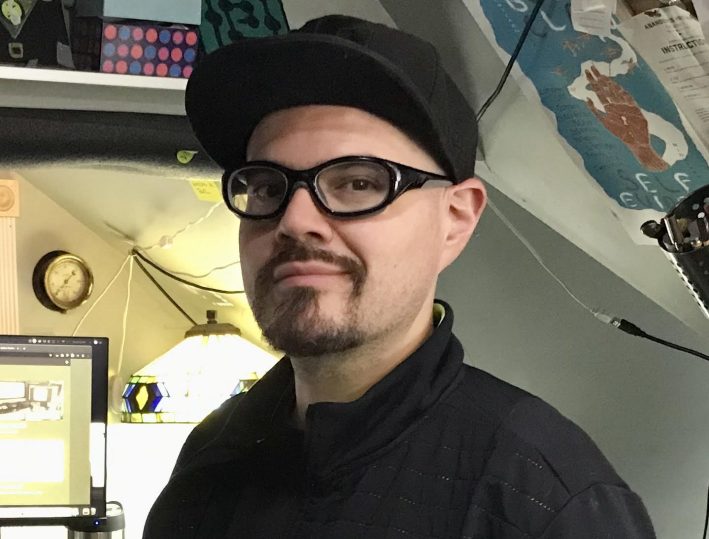
Antonio Perez-Cajina
Linking hospitality to UX Design
Antonio Perez-Cajina never expected his restaurant career to last forever. As he says, “Not everyone can be that really cool grandma that used to work at Nye’s.”
After taking a restaurant job to pay for college, “life happened,” and Perez-Cajina spent around 20 years as a “bartender, manager, server, bar manager, manager on duty, double duty, triple duty—every position” at spots including Origami, Kyatchi, and Icehouse.
Thanks to some pandemic-inspired soul-searching, a copy of The Artist’s Way, and a UX Design bootcamp, Perez-Cajina turned his longtime side hustle, graphic design, into his main gig.
“I’ve always been an artist, doing art on the side,” Perez-Cajina says. “I guess in the last couple years especially I would spend a lot of time thinking about what my next move would be.”
His real breakthrough came a few months into the pandemic, after George Floyd was murdered.
“I spent the first month or two with so much anxiety about what the future was gonna hold, how I was going to pay my bills. Then, obviously, Memorial Day happened and we were here in the Twin Cities. I had sort of an epiphany, through conversations that week out on the streets after the uprising with friends and neighbors. Everyone was reflecting on everything that was happening—our lives, our place in the world. It kicked into high gear. Things have to change. We have to change what we’re doing.”
After multiple people mentioned they’d attended local computer training school Prime Digital Academy, he took it as a sign that that’s where he needed to be, too. A grant through the Dislocated Workers Program helped him pay for the program, and doors began to open.
“I was in this really intense program. Software development originally sounded appealing—solving puzzles and whatnot. But when I was looking into programs I saw UX Design.”
Perez-Cajina realized that he already had a lot of the skills necessary for his new line of work— thanks to his old one.
“I actually read the description of what it entails, and it was the intersection of so many of the skills from my background. You use problem-solving on a daily basis being a restaurant manager and bar manager. Multitasking. Solving problems. Talking to users. Having empathy for users,” he says. “There’s so much overlap within the hospitality industry and UX Design. When I started the program it totally validated everything I was thinking. It felt like I was really at home.”
While he often misses the energy and excitement of service, Perez-Cajina has been liking the steadiness of 9-to-5 work. The promise of retirement, health insurance, dental insurance, and “seeing the sun.”
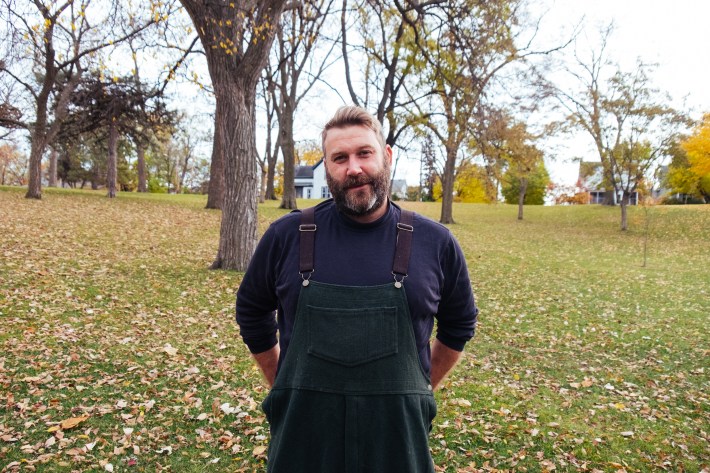
Ian Szymczak
From menu recommendations to vintage finds
Ian Szymczak was always skilled at hospitality, a talent that landed him jobs at some of the Twin Cities’ very favorite dining destinations over two decades.
The problem?
“The industry, sadly, didn’t match up with my personality,” he says. “It took a lot out of me to be social like that. I’m pretty introverted. I like to work alone. I became pretty good at it, I think. But it didn’t come naturally to me, being on stage all the time.”
Like many in the industry, Szymczak had substance abuse issues. The fakery of constant niceties got to him, too. As did the hierarchical aspects of the job.
“I really struggle when I’m in charge in a restaurant,” he says. “I think I have a weird relationship with authority figures for some reason. I feel too willing to bend over backwards. I work too hard to make other people money. I’ve worked for amazing people and I’ve been happy to help them achieve success, but the whole class consciousness thing has settled in for me a little more.”
The pandemic offered a forced path out. Away from the industry for the first time in years and able to pursue old passions, Szymczak began sourcing vintage clothing and sharing it on Instagram. Soon he had a following.
“I was happier and feeling better,” he says. “Vintage was always something I’d been interested in. I’ve always been a thrifter, since I was 12 years old and collecting vintage clothes, but I didn’t know I could do that as a job.”
These days, the former manager, server, and bartender has his own brand, Salty Vintage. Appearing at local pop-ups and posting finds on Instagram, he’s set to open a by-appointment brick-and-mortar space in the near future.
“I don’t believe that everything happens for a reason, necessarily, but it was a shift I never made for myself,” he says. “The fact that it was done for me changed my whole world.”
And as things go, Szymczak’s time in the industry wasn’t for naught. Certain lessons can be applied to both fine dining and graphic tees.
“Every kind of person is there, from all classes,” he says of restaurants. “You can go and spend $20 or $500 and feel like you should be there and find something that you want. That’s the ethos I try to bring to this, too. I want people that are super vintage collectors to find something for them, or I want a 14-year-old that’s there with their mom to find something.”
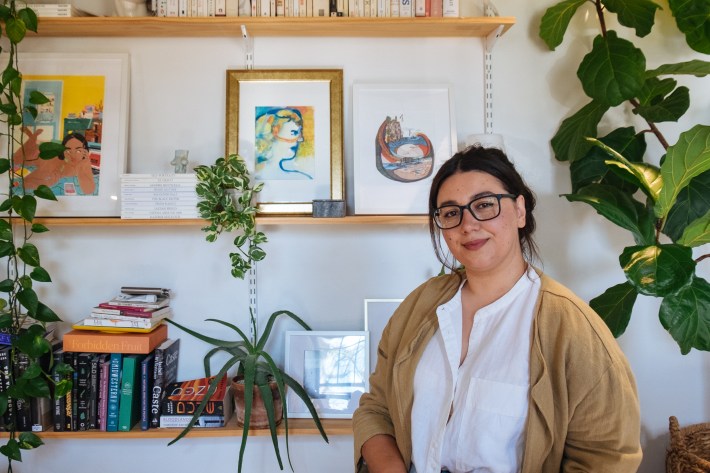
Sarina Garibovic
Sommelier turned educator
Sarina Garibovic always felt most fulfilled when sharing her wine wisdom with others.
But even for a sommelier, restaurant work isn’t all pairing tastings and receptive guests. There are people to answer to, bottles to sell, napkins to fold, spills to clean. The magic is there… but it’s not always there.
“Restaurants are great because you get to do a lot of things, but it’s a very urgent environment,” the former Alma sommelier says. “But there’s not a lot of time for long term planning and ambitious goals. I noticed that those were really the things that were driving my business in my work—having these schemes and ambitions.”
Thanks to this self-knowledge, Garibovic was able to dig right into her plans once the shutdown began.
“What I really liked to do in restaurants, outside of serving and managing and all of that, was creating education for wine. I wanted to take that out of restaurants and get that to non-restaurant people as well,” she says. “Having the time on my hands, I was like, ‘I could just do this ... alone.’”
With unemployment offering her the ability to create space and “the chance to not be panicked all the time,” Garibovic co-founded Twin Cities Somms, a nonprofit board dedicated to “elevating the quality of beverage education in Minnesota.”
The group gave local wine professionals the opportunity to taste together—like a study hall of sorts, or a wine book club.
“Getting that off the ground gave me a lot of confidence,” Garibovic says of the nonprofit. “I thought, ‘I could do this for consumers and not just people in the industry.’”
And so, along with friends Berit Johnson and Sarah Darnall, she concocted the wine and cocktail education company of her dreams: Ženska Glava. Named after a Bosnian-Croatian-Serbian idiom that translates to “woman’s head” and is used to describe “illogical” behavior (a phrase Garibovic hated as a child), the sommelier service seeks to “bring wine and spirits to the people, and the people together.” It’s accessible, fun, and very, very chic.
Ženska Glava began offering virtual classes, starting (aptly) with “How To Taste Wine Like an Out of Work Sommelier.” The vision for these classes was set early on: an attendee limit so 1:1 time was possible, the opportunity to pick up the wines that were being talked about, the importance of real education as opposed to just tasting and being talked at, and, most importantly, accessibility.
“Wine education is for everyone. It’s not just people who drink wine, or alcohol at all,” Garibovic says.
Anyone who wants to join a Ženska Glava event can feel comfortable doing so, safe in the knowledge that they, like everyone else, ultimately know nothing about the topic at hand. Instead of working to manage and exceed a guest’s expectations for their perfect anniversary dinner, Garibovic can use her skills to expand attendees’ horizons—and maybe surprise them along the way.
Garibovic has thought a lot about how the service industry conditions workers to value urgency and perfection above all else.
“People would come to wine classes on their day off because they want to make their job more interesting and more fulfilling for themselves,” she says. “We’ve got to figure out how to slow things down a little bit to figure out how the human beings that carry all this labor can have room to be whole people.”
